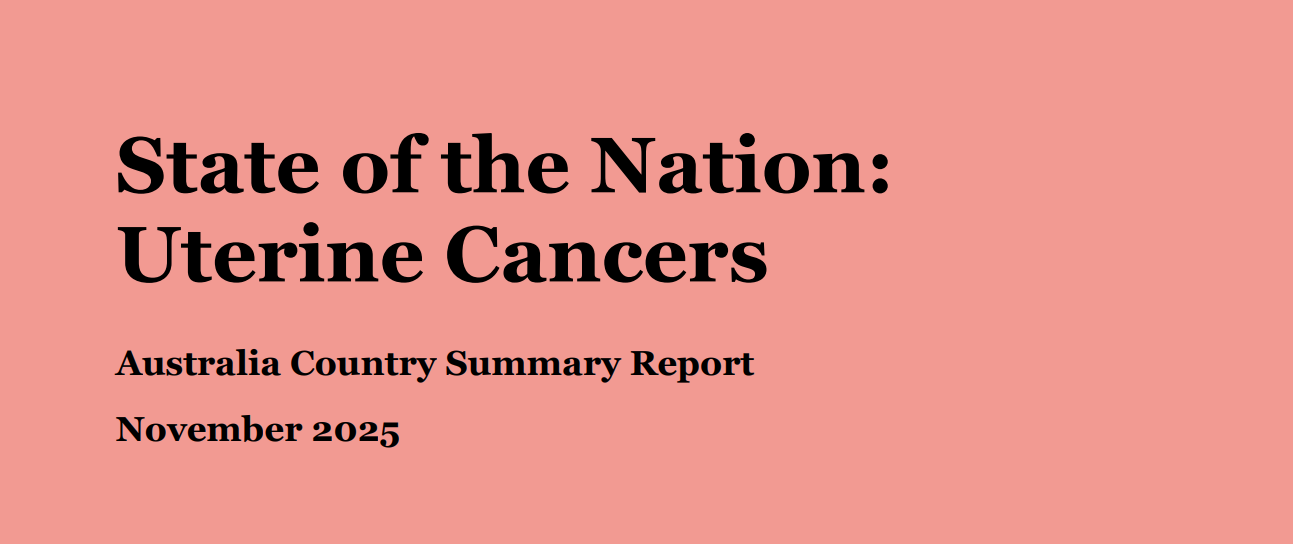The Australia New Zealand Gynaecological Oncology Group (ANZGOG) reported this landmark, evidence-based report, which draws on national data, clinical research, and lived experience to reveal the true size, scale, and growing impact of uterine cancers across the country.
The State of the Nation: Uterine Cancers 2025 report is the first comprehensive national analysis of uterine cancers in Australia and New Zealand. Drawing on the latest national data, clinical evidence, and lived experience, this evidence-based report explores the risk factors, diagnosis, treatment, outcomes, projections, and survivorship of uterine cancers.
Importantly, the report also charts a way forward. It identifies priority actions to strengthen prevention, drive earlier detection, improve treatment, and deliver equitable care, providing a national roadmap to reduce the rise of uterine cancers, improve outcomes, and save lives.
Some key findings include:
- Uterine cancers are Australia’s fastest-growing women’s cancer. Diagnosis is rising fastest among women aged 25–44, with cases projected to increase by around 60% in the next decade.
- Up to 60% of cases could be prevented, but uterine cancers are unknown. A staggering 94% of women don’t know what uterine cancers are and the disease remains largely invisible in Australia’s cancer conversation.
- Hidden populations: Aboriginal and Torres Strait Islander women, women in regional and remote areas, and those from lower socioeconomic backgrounds face higher diagnosis delays and mortality rates.
- Unsupported: Support and psychosocial care are inconsistent, leaving women to cope with long-term side effects on their own, including pain, anxiety, fatigue, and neuropathy.
- Underfunded: Despite affecting thousands, uterine cancer received just $1 million per year in research funding, compared with $24.5 million per year for breast cancer over the same period. While more women are diagnosed with breast cancer, this still represents a 427% funding gap per diagnosis, per year. This disparity contributes to women with breast cancer having over seven times more treatment options, and those with metastatic breast cancer having more than 11.5 times the options available to women with advanced uterine cancer.
The report also provides a national roadmap to reduce the rise of uterine cancers, improve outcomes and save lives, this includes the following recommendations:
- Halve the incidence: National awareness campaigns and education initiatives to improve early detection and prevention. Prioritising prevention, research, and equity will benefit more than 44,000 women expected to be diagnosed in the next decade and improve outcomes for all Australians.
- Invest in research and data: Including investment in research, including a national research taskforce and improved data collection and linkage to deliver a high impact comprehensive research program.
- Eliminate inequity: Development of culturally safe, equitable models of care for priority populations. These include limited access to culturally safe care, language barriers, lower baseline awareness of symptoms, historical distrust in medical institutions, and financial hardship associated with seeking care.
- Precision care for every woman: Expansion of access to molecular profiling, clinical trials, and novel therapies, and.
- Support for every woman to live well: Implementation of survivorship models and dedicated patient support services.
Read the Australian Summary Report.

You can read more posts featuring ANZGOG on OncoDaily.


